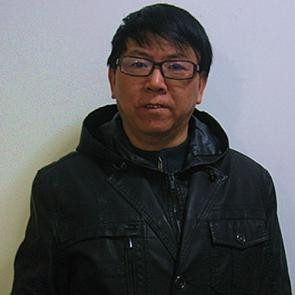China’s Neo-Authoritarianism on Display at the G20
Between 4-5 September the leaders of 19 of the world’s largest economies and representatives from the European Union meet in Hangzhou in eastern China to discuss global financial stability and international economic policy. It is the first time that China is hosting a G20 Summit and it is another opportunity for it to announce its arrival on the world stage. Millions of dollars are being spent to ensure the city is picture-postcard perfect for the arrival of the dignitaries.
In the last couple of years, much attention has given to the Chinese government’s approach to stabilizing its economy, including efforts at reform; its military build-up and muscular approach to the South China Sea; and its foreign relations efforts in Africa, the Middle East and Latin America. President Xi Jinping has clearly sought to strengthen his rule by ousting other Party leaders and dismantling their power bases and developing a cult of personality that, while it cannot match that of Chairman Mao, is at least reminiscent of the former Chinese leader.
Less attention has been given to President Xi’s crackdown on human rights defenders (HRDs), which has vastly expanded in scope and intensity from anything that existed since the immediate aftermath of the Tiananmen protests. The President and the Communist Party have framed this crackdown in terms of either upholding Chinese values or rejecting Western values. As China under President Xi extends its reach to all corners of the globe, domestically its citizens are being encouraged to turn increasingly inward in their pursuit of the much vaunted but elusive Chinese Dream..Interactions with non-Chinese groups or individuals have been used to bolster proof of subversive intentions in the trials of HRDs and oneadmitted in court to having been “long... influenced by bourgeois liberalism”.
However, the purge of HRDs, including those advocating for minority rights, has less to do with Chinese values and more to do with authoritarian values. In this respect a clear line can be traced back to Document No.9, a confidential communique circulated amongst the upper echelons of the Chinese Communist Party (CCP) in 2013. The document warns against the rise of so-called Western values, including constitutional democracy, civil society and a free press. It also warns against the promotion of ‘universal values’ and the questioning of CCP leadership and ‘socialism with Chinese characteristics’. By portraying any questioning of the legitimacy of the CCP and its policies as part of a vast anti-China conspiracy, the Party is pushing its authoritarian values, cloaked in the language of Chinese values and ‘a great rejuvenation of the Chinese nation’. This was made all the more apparent in a recent propaganda video warning of the consequences of so-called ‘color revolutions’ and foreign interventions, which posited images from Iraq, Libya and Syria (and the chaos and devastation in those countries) alongside ‘threats’ to the Chinese system. Such warnings of existential threats can be conveniently used to justify any action taken by the government, and much effort was made to depict human rights lawyers as engaged in a Western-funded plot to destabilise China. The video ends with messaging any authoritarian ruler would recognize - “Those in school should work hard. Those in jobs should work hard...When every one of us can get his or her own job done, Color Revolution conspiracies will eventually leave us alone.” The video was created by the Supreme People’s Procuratorate – the national agency for investigation and prosecution – effectively the country’s judiciary.
In Hangzhou, efforts will be made to gloss this over and present a shiny image to its foreign guests. Yet, the message to the G20 leaders will also be clear – China is happy to do business; otherwise, stay far away.
But President Obama, Prime Minister Trudeau, Chancellor Merkel and the other leaders need not look very far for examples of how impervious China has been to criticism from afar of its human rights record. By holding the Summit in Hangzhou, the Chinese authorities are actively thumbing their noses in the faces of leaders who say they attach importance to human rights. In the very city which will host the heads of 17 states which have signed and ratified the International Covenant on Civil and Political Rights, two long term democracy activists were sentenced to over ten years in prison just three months ago.
In a single day trial, Lu Gengsong and fellow HRD, Chen Shuqing, were convicted of ‘inciting subversion of state power’ following their publication of essays on overseas websites promoting democratic reform in China. Lu received an 11-year sentence while Chen was sentenced to 10.5-years. For the leaders of countries who stress the importance of political and civil freedoms, it is difficult to think of a better opportunity where they could stand together and demand that the Chinese authorities release these two men who are in prison simply for expressing their opinions.
That the G20 nations put trade and investment ahead of freedom and human rights is not a surprise, nor even newsworthy. It is certain that even as international human rights organizations call on their heads of state to say something, anything, when they are in China, Chinese human rights defenders have not only no expectation of such action, but little hope for even the mildest, most innocuous indication that their human rights matter to this gathering. Too often, Western leaders appear to be heading to China, hats in hand, seeking not to offend, not to make trouble, not to strike a sour note by raising concerns about the treatment of Chinese citizens, including human rights defenders. Would only they have even an ounce of the bravery and courage of Lu Gengsong or Chen Shuqing, or any of the other hundreds of HRDs imprisoned for daring to speak truth to power.

